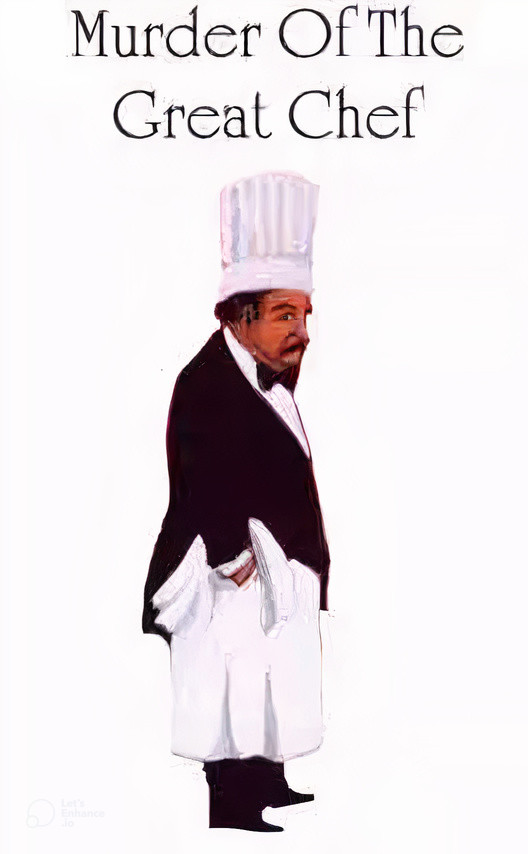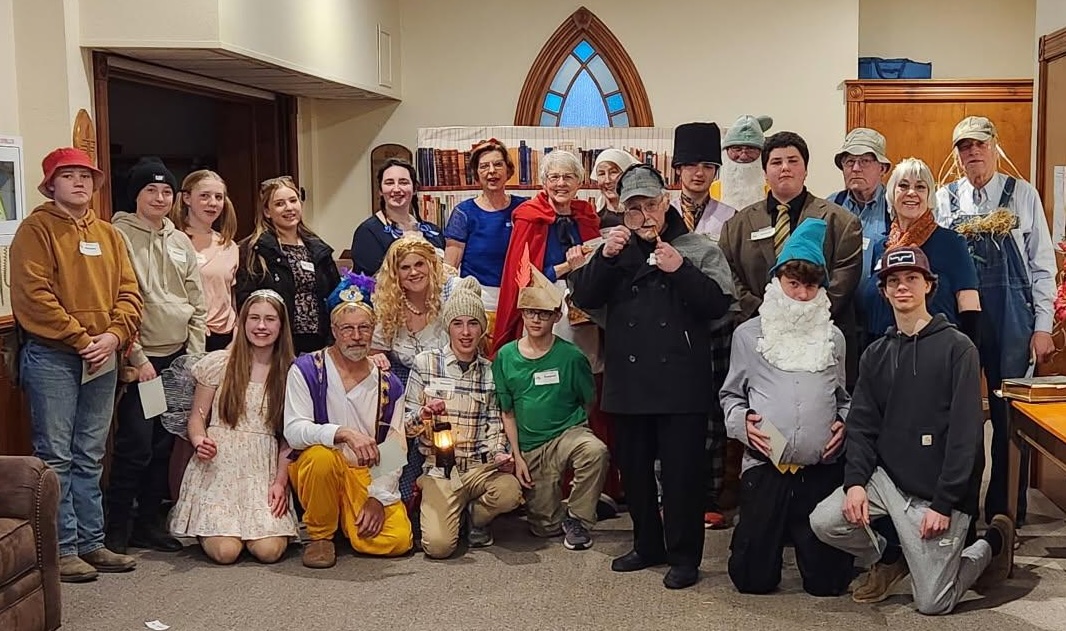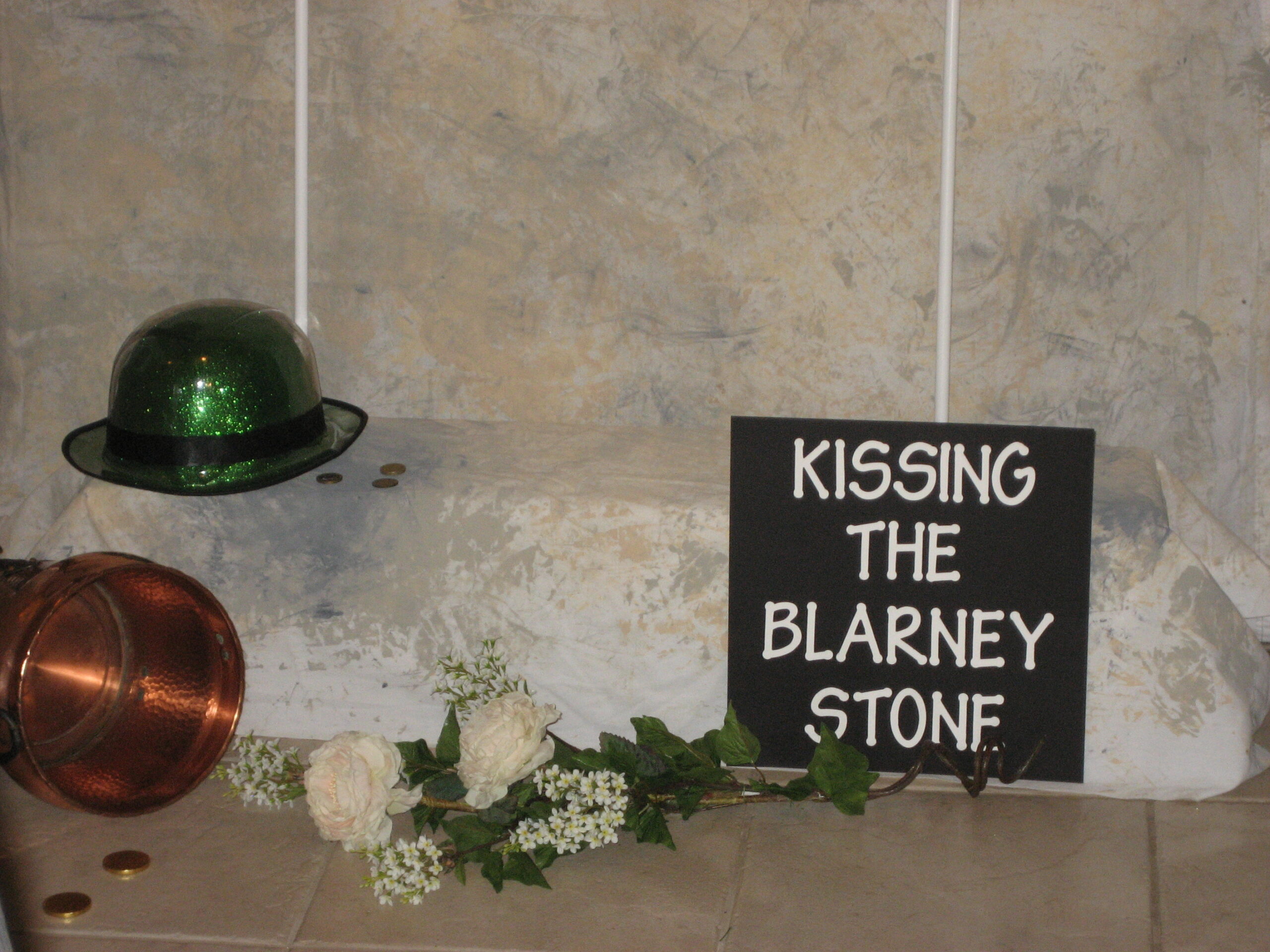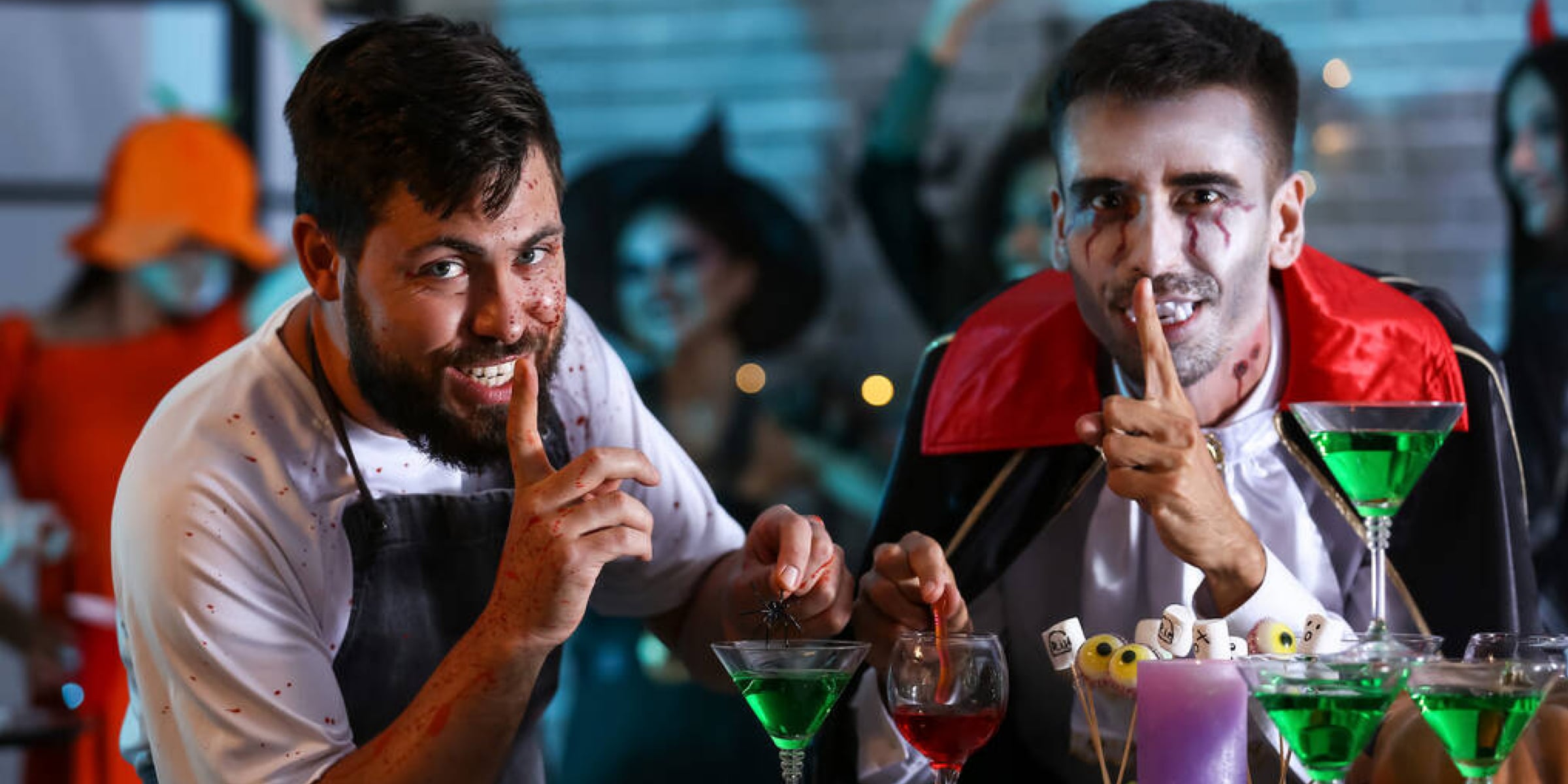Please read the overview and all the descriptions of the suspects before the party. Sometimes we hide clues in these descriptions.
Overview
It’s 1948. Tonight, we have gathered together at the Culinary Institute of America to honor the Institute’s Great Chef Alan Davies, who is receiving the highest award in the culinary world — The Edmond World Class Culinary Award. Unfortunately, we have just received news that he was murdered this afternoon. Some of the people who are gathered have been invited; the others have forced their way in.
The suspects
Mary Homebud (Alan’s long-term fiancée)
I grew up in Cedar Rapids in Iowa. I worked weekends at one of my parents’ shoe shops. They own a chain of stores around America. I enrolled in secretarial school in New York. I promised my parents that I would still go to church and be a good girl. They didn’t want the big city to corrupt me, so they arranged for me to stay at my aunt’s. I met Alan. He was very handsome and rather suave, and he’d trained in France for six months. He adopted the chicness of the French and used to say, “Excuse moi garcon” when we were at a restaurant. When Alan asked me out, I was amazed. I felt like such a country girl compared to him. But he said he liked my naiveté — whatever that meant! Unfortunately, after we were engaged, he didn’t bother taking me to restaurants anymore. Dress suggestions: Dainty clothes with touches of lace. Nothing revealing at all. Smell of muffins (carry a few hot ones).
Paula Tortula (Alan’s second fiancée)
I grew up in New York. I had a lot of brothers and sisters, so we didn’t have much money to go around. My mother was always singing to herself as she did the laundry. At nighttime, the whole family gathered around the piano and my brother played and we all sang along. When I was eight, my mother entered me in a singing competition, and I won. I was so thrilled. My mother used the money I won to pay for my singing lessons. I learned tricks like using honey to make my voice sound smoother. Then I won another competition and one of the big-name music scouts came backstage and asked me if I’d like to sing in a jazz band. He said I’d be the next Billie Holiday. It was my dream come true to be able to sing for a living. Dress suggestions: A glittering outfit — sequins or glitter — dazzling and glamorous. Add high heels.
Yves Larousse (French chef)
I grew up in Paris. My father was an aromatherapist. As an only child, I spent a lot of time with my mother. She loved to cook. I knew I’d be a brilliant chef because I made honeycomb at the age of four. By the age of 10, I was making soufflés and other extravagant dishes. I invented my own recipes like Spatch-cock and Spinach Swirl and Camembert Cream Croissants. I wrote them all down in a special book. I knew I wanted to be a chef, so I mastered the skills even before I went to culinary school. Even though I loved Paris, I knew I’d have to go overseas to obtain real fame and fortune. Dress suggestions: A beret, neck scarf, and chef’s check trousers. White shirt. Carry a cook notebook with your name written on the cover.
Cath Scarlet (bag lady)
My mother was a dancer at a nightclub over on the East Side of New York. We were poor. When I was growing up, mom used to let me play dress-up and put on her make-up. When I turned 16, mom was getting a bit old and she’d thrown out her back doing the can-can. So she had no choice but to send me to work as a dancer. I was always toppling over in my stilettos at first like a newborn giraffe, but I got used to them. During the war, I got lots of tips entertaining the troops. But it didn’t last. Just like my mother, I threw out my back but this time doing the jitterbug. Then a few bad things happened and I ended up as a bag lady. Dress suggestions: Bring the bag or trolley, which contains all your possessions. Wear a rag torn outfit and a dirty face. Add an odor of the sewer (but don’t overdo it).
Joe “Slasher” Tessarario (gangster)
I grew up in Detroit. My dad was always in and out of the clink. He didn’t know how to arrange things properly. My mom wanted me to be a good Catholic boy. I loved my mom, so I just didn’t tell her my plans for raising capital. The real money, I discovered, you could make from investing your money — loaning it to people. If they used the money to make more money, we both got rich. Sure, I charged a lot of interest — why do you think they call us loan sharks? — but I lent to people the banks considered risky. If they couldn’t repay, you told them you’d stand them in something sticky and heavy, and I’m not talking about toffee. Generally, they wised up. Soon, I had a strong network of people who owed me favors. My troops. Dress suggestions: Clinging nylon shirt, gold chains, black leather coat or else double-breasted jacket or flash suit. A hat. A few knives through your belt (blunt ones, please).
Katie Pitman (Chef’s secretary)
I grew up in Washington, DC. My father was an accountant. As the eldest girl of a family of seven, I had a lot of responsibility in the family. At school, I was good at my studies and I was the school captain. I don’t smoke, but I admit I chew too much gum. At secretarial school, I topped my class. I was able to type a hundred words a minute. I still can. My ancestors invented shorthand. Maybe that’s why I was so good at it. I met my wonderful husband William when I was 22. He is a bit older than me and he went to WWI. Fortunately, he survived. He is an engineer. His work took him to New York, so we moved here. I love it here because I can buy the smart type of clothes that you just can’t get in DC. Dress suggestions: Business dress, nothing revealing, just smart and stylish. Low heels. Just a touch of makeup. Carry a work diary. Look capable.
George Creuset (pot-washer)
My mother died having me. My father raised me with his sister’s help. We were as poor as caged hamsters, but my dad still knew how to have a good time. He could really make his mouth-organ sing. I think dad’s attitude to life has rubbed off on me. I’m always whistling while I wash my pots. And I love singing. I wish I could sing like Paula. I’ve been washing pots at the Institute for 5 years. I didn’t go to the war because I have flat feet. I don’t want to be a pot-washer forever. I’ve got plans. Big plans. I dabble in electronics and I’ve invented a machine that will wash pots. I call it Creuset’s Cleaning Contraption — well, that’s the working title. It’s actually a “dishwasher” without arms or legs. I haven’t married yet. I want to wait until I stopped being a pot-washer and have launched my invention. Dress suggestions: Poor check flannel shirt; old, but clean. Carry a pot and a scrubbing brush. Whistle a merry tune.
Fred Cleaver (butcher)
I’d always loved all those gory war stories and the sight of blood had never worried me, so I decided to be a butcher. Meat has always been my favorite food – feed the boy beef and make a butcher of him, I suppose. Vegetables are a waste of time, except for French fries. When I got back from the war, an old bachelor uncle of mine died and left me some money, so I set up my own shop. My shop was near the Institute and pretty soon I had them as a customer. My prices are competitive, and my parsley and pork sausages are the best in town. I met Bessie after I got the shop. She’s a great wife and our kids are good kids. And by the way, as a butcher, I have some favorite knives. There is one in particular that will cut through anything. It is my favorite. Dress suggestions: An apron with a few tomato sauce (ketchup) stains (pretend they are blood). Carry a large (blunt) knife.
The optional investigator
Mrs. Jones (investigator) I have gained quite a reputation for solving mysteries and murders. As the Police appear to be corrupt (due to Joe’s influence), the Institute has asked me to do a bit of snooping for them. Dress suggestions: Dress in your good “church” clothes. Don’t forget your white gloves and your hat and shoulder pads. Maybe bring some opera glasses so you can keep a close eye on everyone. You may also like to bring your knitting.
The optional witnesses
General Sid Davies (brother) Alan and I were always fighting as boys. He was older than me. He used to steal my toast and squeeze my mashed potato through his fingers. And if I told on him, he would punch me later on. He was mother’s pretty little pet. He spent a lot of time with her in the kitchen. I suppose that’s where he got interested in cooking. One of his little rackets was stealing from our dad’s coin collection. He used the money he stole to advertise his little business selling the cakes he made. When we were teenagers, whenever I met a pretty girl, he would always tell her I had incurable cold sores — a total lie. Because of the money from his cake business, he’d buy girls flowers and malted milks, so they fell for him. Dress suggestions: A coat and tie, both adorned with war medals. Carry a pipe.
Helena Flan (Institute administrator) My parents moved all over the US, because my father was a traveling salesman. My dad was always selling the latest fad — here, there, and everywhere. You know, things like hula hoops, yo-yos, and pogo sticks. I always liked to keep myself trim and fit (I still do), so I spent a lot of time with my dad’s exercise equipment. My dad was a classic salesman visiting every town. Mom didn’t seem to mind him being away a lot. My parents are very happy together. I think I inherited my dad’s cheeky smile. Someday I want to settle down, but I’m young and I haven’t met my honey bun yet. Dress suggestions: Pretty, tight-fitting dress. Definitely heels and plenty of make-up. Fishnet stockings.
David Wurst (apprentice chef) I was born in Germany, but my parents immigrated to America. They run a deli, and I loved working there because I love food. I used to experiment with all the leftover scraps of food. You know — the bits of meats, slices of liverwurst, and bits of cheeses. I’d cook them up into some pretty strange combinations like liverwurst and cabbage pie and frankfurt and cheese flan. But with practice, my combinations got better and better. I worked very hard at school and my grades were good enough for me to receive a Culinary Institute of America scholarship. During my first year at the Institute, I did very well. I topped the class, in fact. During my third year, the Great Chef died and Alan Davies became the new Great Chef. For me, that was a real turn for the wurst. Dress suggestions: Chef’s check trousers, a white puffy hat, and a white shirt. Add stains. Carry a rolling pin.
Mrs. Dulcie Gobbler (widow of the previous Great Chef) I grew up in Boston. My parents were extremely wealthy. I was sent to finishing school in Paris. While I was in Paris, I met Arnold. He was there studying to be a chef. We fell madly in love — oh, how I remember those nights under the Eiffel Tower. Of course, my parents were horrified to hear I’d fallen for a chef. But Arnold and I were very determined. We eloped at the end of our studies. For a long time, my parents refused to meet Arnold, but after our first child Jimmy was born, they were dying to see their grandchild. I told them they could only see him if they came to our house and met Arnold. After my parents met Arnold, they could see why I’d married him. He was such a dignified man and so caring about other people. Now I am a patron of the Institute. Dress suggestions: Hair touched up with talc to make it look gray, powdered make-up, dignified dress, and a few jewels — but nothing gaudy.
Dixie Day (candy seller at a picture theatre) I was born in Alabama. I was the only child of a vaudeville couple. After I finished school, I was starting to get a reputation as a tap dancer, but then I had a bad fall, so that was the end of my dancing career. Then I came to New York. Alan Davies always used to flirt with me at the movies. He came to the movies alone, so I thought he was single. Dress suggestions: Short flouncy skirt and a box tied to your front with candies and gum for sale. Add stockings and high heels.
Humphrey Hubert (owner of a cafe) I was born in England, but we immigrated to the United States when I was two, so I am more an American than an Englishman. My parents gave me the money to set up my own cafe soon after I finished business school. I am friendly with all my customers, and I was friendly with Mr. Davies, too. He said I served the best coffee in New York. Mr. Gobbler, the previous Great Chef, was also one of my customers. I was greatly grieved when he passed away. Mr. Davies was a stingy man. He always complained about the cost of everything. He even complained about the cost of my coffee and my coffee is cheap compared to some cafes. Dress suggestions: Dress well but with an apron on top and come in holding a cappuccino maker or a plunger coffee maker.
Luigi Malfredi (men’s hair cutter) I was born in New York. My father was a hair cutter. Hair cutting is in my blood. When my father died, he left me the salon in his will. He had a heart attack while he was shaving his favorite client’s beard, but even as he was falling to the floor, he was careful enough not to cut anybody with the blade. Can you believe that? What a barber. People say I am as good with rumors as I am with my shaving blade. The Chef had been going to me for years. Joe is my cousin. Dress suggestions: If possible, bring your striped barber’s pole with you and have your hair slicked back. Add a moustache and a barber’s apron. Carry a shaving brush and shaving soap dish.





